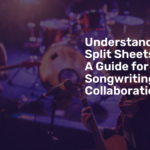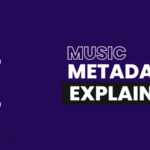People often hear the word publishing in music and assume it is the same as distribution or streaming income. But what is music publishing really, and why is it important for you to understand it?
Simply put, music publishing is about the rights, monetisation, and administration of the composition of a song.
The keyword here is the composition which is the lyrics, melody, harmony, and structure of a song. This is very different from the sound recording (also called the master), which is the actual audio file you hear on Spotify, Apple Music, Boomplay, or Audiomack.
Think of it this way:
- When you write a song (lyrics and music), you create the composition.
- When someone records that song, it creates a sound recording (the master).
These are two separate copyright assets. Music publishers handle the composition side.
The Two Main Copyrights in Music
Whenever a song is created, two copyrights are born:
(i) Copyright in the Composition
This covers the lyrics, melody, chords, and structure. It is owned by the songwriter(s) and their publisher(s). Royalties are generated every time the composition is performed publicly, broadcast on radio, streamed, downloaded, or licensed for use in film, TV, or advertising.
(ii) Copyright in the Sound Recording (Master)
This covers the recorded version of the song. It is usually owned by the performing artist, record label, or whoever financed the recording. Royalties flow when the master is streamed, sold, or licensed.
Example: If Tems writes and records a song, there are two separate copyrights:
- The composition, owned by Tems as songwriter and her publisher.
- The master, owned by Tems as performer and possibly her record label.
Every time the song is played, both copyrights can earn income, but through different channels.
Key Rights and Revenue Streams in Music Publishing
Music publishing generates income in different ways because every use of a song has value. Publishers act on behalf of songwriters and composers to collect three main types of royalties:
- Performance Royalties
These are earned when a song is played or performed in public. This includes radio, television, live shows, concerts, clubs, restaurants, and even background music in shops. It also covers broadcasting and, in some cases, streaming platforms.
- Mechanical Royalties
These are paid when a composition is reproduced, whether on CDs, vinyl, or digitally through downloads and streams. For example, each time you stream a song on Spotify, Apple Music, or Boomplay, the songwriter receives mechanical royalties.
- Synchronisation Licensing (Sync)
These come into play when a song is used alongside visual media such as films, adverts, TV shows, video games, or YouTube videos. A sync licence is usually required and often involves an upfront fee, plus possible ongoing royalties if the media is broadcast widely.
How Music Publishing Works: Key Players and Processes
Whenever music is used, royalties are generated. But songwriters do not get paid directly. The money passes through licences, rights organisations, and publishers before reaching them.
It starts with usage. Radio stations, TV channels, streaming platforms, or venues pay licence fees to play music legally. In Nigeria, COSON and MCSN collect performance royalties locally. While global royalties from downloads and streams are usually managed by music publishers. Sync royalties, which come from films, adverts, or TV, are normally negotiated directly with publishers or songwriters.
Once royalties are collected, they are split between publishers and songwriters according to their agreements. A songwriter who is self-published keeps the full share, aside from admin deductions. Finally, payments are sent to creators, often on a quarterly or biannual schedule.
Common Types of Publishing Agreements
- Full Publishing Deal
The songwriter assigns a large portion of copyright to the publisher. The publisher takes on responsibilities such as pitching, licensing, administration, and royalty collection. In return, the songwriter receives a share of the income.
- Co-Publishing Deal
The songwriter and publisher share ownership of the copyright. A common split is 50/50, but percentages vary. The songwriter keeps more ownership compared to a full publishing deal while still accessing the publisher’s resources.
3. Administration Deal
The songwriter keeps full ownership of the copyright. The publisher or administrator only provides services such as registration, licensing, and royalty collection in exchange for a fee. This deal suits writers who want control but need help with admin and international collection.
Common Grey Areas in Music Publishing and How to Avoid Royalty Losses
Even with clear agreements, some tricky areas can affect how and when songwriters get paid. Understanding them can save you from lost royalties or disputes.
- Split Sheets and Ownership Disputes
When multiple people work on a song, a clear record of contributions is essential. Without a split sheet showing each person’s share, royalties can be blocked or misallocated. Always agree on percentages, record contributions immediately, and register accurate metadata. You can download our split sheet template here.
- Unregistered Works and Non-Registration
If a composition is not registered with the relevant collection society, royalties can go unclaimed. To prevent this, join a collection society or PRO in your country and make sure works are also registered internationally if you expect foreign plays or syncs.
- “Black Box” Royalties
Sometimes royalties are collected but not distributed because the rightful owner cannot be identified. This is due to missing metadata, incomplete splits, or unregistered works. These funds sit in a “black box” until they are either claimed or redistributed to others. To avoid the risk of losing money to the black box, register your song properly and ensure accurate
- Territorial Rights and International Royalties
International plays don’t guarantee automatic payments. You only get paid if your PRO has reciprocal agreements in those territories, and fees like taxes or conversion costs can reduce what you receive.
- Timelines and Delays
Royalties are not immediate. Registration, validation, reporting from streaming platforms and broadcasters, and sync licensing all take time. Most royalties are paid quarterly, but delays can stretch longer. Being proactive with registration helps speed things up.
How to Maximise Your Publishing Income
- Always use split sheets when there are multiple contributors.
- Register songs early with your PRO or CMO.
- Understand contracts before signing. Pay attention to duration, rights, splits, and territory.
- Consider administration deals if you want control. Use co-publishing or full deals when you need more support.
- Explore sync licensing opportunities in film, advertising, and TV. Africa’s creative industry is growing fast.
- Track your music use on streaming, radio, and live shows.
Importance of a Good Publisher / Publishing Administrator
Having a publisher or publishing administrator ensures you do not leave money on the table. A good publisher helps register your works with PROs and CMOs in multiple territories, collects all possible income streams including performance, mechanical, and sync royalties, and pitches your songs for sync opportunities in adverts, films, and TV. They also handle licensing and contract negotiations and ensure your metadata is correct across all systems.
For African creators, AfroSoundtrack provides a one-stop solution for managing music publishing. We help songwriters, producers, and composers register and collect royalties locally and internationally, secure sync placements, and access a music library for adverts, films, and campaigns. With AfroSoundtrack, African artists can focus on creating music while ensuring they maximize their publishing income.
What You Should Do: Practical Steps
Here is a checklist so you don’t leave money on the table:
- Agree on splits and get signatures as soon as a song is created.
- Join a PRO or collection society in your country and register works immediately.
- Producers should claim co-writer credit if they contribute to composition.
- Use a publishing administrator if you want global royalty collection.
- Keep detailed records of all agreements and uses.
- Regularly review royalty statements and follow up on missing income.
- Don’t assume income will just find you. Be proactive. Synchronization income, library placements etc often require pitching or having someone (publisher or sync agent) to negotiate.
Why Music Publishing Matters Long Term
- Evergreen income: Songs can earn royalties for decades.
- Diversified income: Sync deals, covers, and licensing can generate more than streaming alone.
- Protection: Proper registration and contracts prevent exploitation. Without them, others may misclaim or exploit your work.
- Equity building: A catalogue of publishing rights is a valuable asset that can be sold, licensed, or used for advances.
Common Misconceptions in Music Publishing
- “I am a producer, I don’t need to register my songs:”
If you contribute to beats, hooks, or arrangements, you are a co-writer. Without credit or registration, you will not get paid.
- “Publishing money is small change.”
While royalties per stream may be small, publishing adds up over time. Viral songs, sync placements, and covers can generate significant income.
- “We’ll sort the splits later”
Without split sheets or agreements, you lose proof of contribution. This blocks royalties and weakens your claim.
- “My PRO is handling my publishing.”
PROs mainly handle performance royalties. Publishing also includes mechanicals, sync, and more. Without a publisher or administrator, much income may never reach you.
- “Once I sign one publishing deal, I’m rich forever.”
Publishing deals take time to pay, depend on usage, and often work on quarterly or longer cycles. No use = no royalties.
- “You can register your songs at any time, no rush.”
Delays open the door for misclaims, missing metadata, or loss to the “black box.” Early registration is essential.
- “If I’m not a big artist, publishing won’t pay me.”
Even small catalogues can produce steady income. Every credited writer deserves to collect their share.
AfroSoundTrack: Your One-Stop Music Publishing Solution
At AfroSoundTrack, we help songwriters, composers, producers, and instrumentalists unlock the full value of their music. From managing publishing royalties to securing sync placements, we make sure you earn from every use of your work.
Our services include:
- Publishing Administration: Registering works, managing metadata, and collecting royalties locally and internationally.
- Sync Placements: Connecting your music with films, ads, trailers, and TV campaigns.
- Music Library Access: Providing ready-to-use African tracks for brands and productions.
- Custom Music Creation: Crafting original music tailored to elevate stories and campaigns.
We are committed to enhancing experiences, generating lasting income for artists, protecting your rights, building equity, and opening doors to global opportunities.


